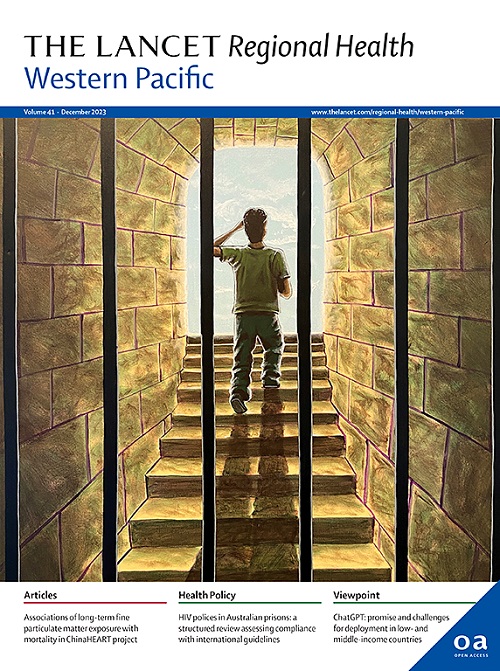Measuring the health and wellbeing impacts of cultural camps among Aboriginal adults: preliminary evidence from the Gaawaadhi Gadudha Research Collaborative
IF 7.6
1区 医学
Q1 HEALTH CARE SCIENCES & SERVICES
引用次数: 0
Abstract
Background
Aboriginal and Torres Strait Islander peoples’ have sustained their cultural practices for over 60,000 years which fundamentally impacts their health and wellbeing. Recent literature emphasizes cultural connection as a contributor to good public health, yet the mechanisms through which cultural engagement promotes health and wellbeing remain underexplored. This study investigates the health and wellbeing outcomes associated with Aboriginal peoples’ participation in cultural camps in New South Wales (Australia), focusing on the role of cultural determinants of health.
Methods
This cohort study, part of the larger Gaawaadhi Gadudha Research Collaborative, examines the impact of camp attendance on health indicators among Aboriginal adults. Participants (N = 43) completed surveys assessing individual cultural health, access to cultural resources, resilience, and health-related quality of life pre and post camp. Paired-samples t-tests and Wilcoxon related samples signed-rank tests were employed to analyze changes.
Findings
Participants reported high engagement in cultural activities and positive experiences at camps. Post-camp responses indicated significant improvements in cultural health, including increased pride in cultural identity, knowledge of traditions, and connections to Country and community. However, measures of resilience and health-related quality of life showed no reliable changes.
Interpretation
The findings suggest that camps play a crucial role in enhancing cultural health among Aboriginal peoples, reinforcing the importance of knowledge of cultural determinants of health. This study underscores the need for further research to explore the long-term impacts of cultural engagement on health and wellbeing and highlights the potential of cultural camps as a model for health promotion initiatives within Aboriginal communities.
Funding
This study was funded by the Australian Government’s Medical Research Future Fund (MRF2009522).
求助全文
约1分钟内获得全文
求助全文
来源期刊

The Lancet Regional Health: Western Pacific
Medicine-Pediatrics, Perinatology and Child Health
CiteScore
8.80
自引率
2.80%
发文量
305
审稿时长
11 weeks
期刊介绍:
The Lancet Regional Health – Western Pacific, a gold open access journal, is an integral part of The Lancet's global initiative advocating for healthcare quality and access worldwide. It aims to advance clinical practice and health policy in the Western Pacific region, contributing to enhanced health outcomes. The journal publishes high-quality original research shedding light on clinical practice and health policy in the region. It also includes reviews, commentaries, and opinion pieces covering diverse regional health topics, such as infectious diseases, non-communicable diseases, child and adolescent health, maternal and reproductive health, aging health, mental health, the health workforce and systems, and health policy.
 求助内容:
求助内容: 应助结果提醒方式:
应助结果提醒方式:


